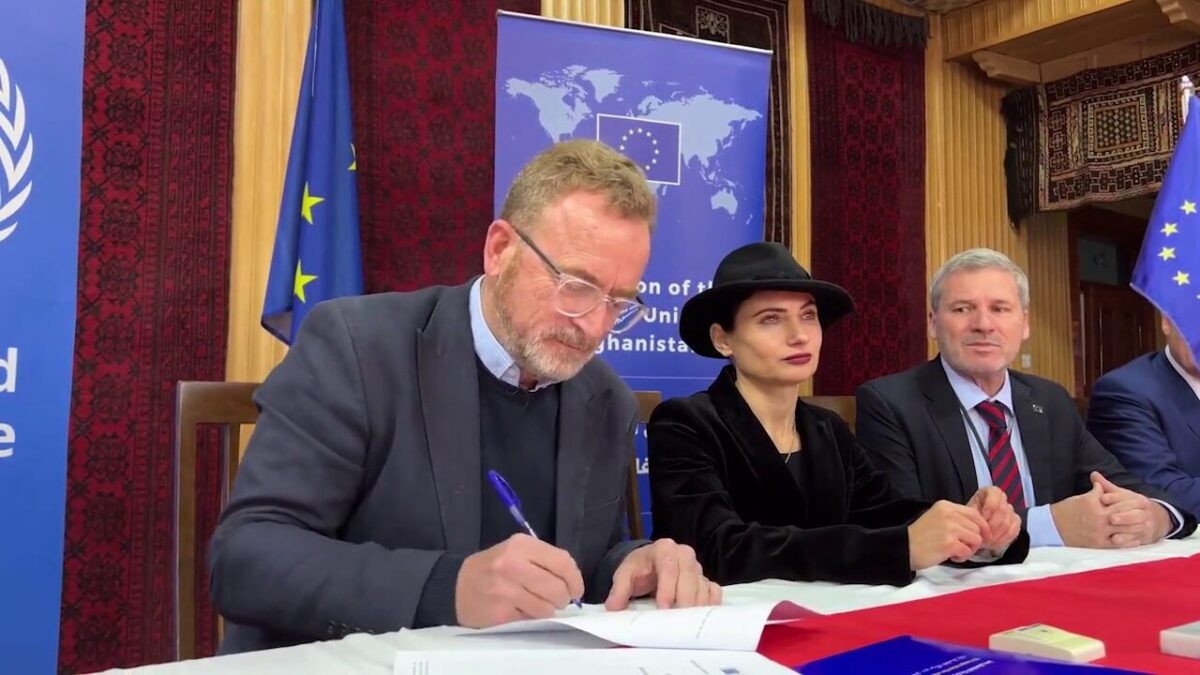KABUL — The European Union has pledged €15 million ($15.8 million) to the United Nations World Food Program (WFP) to bolster Afghan communities’ resilience against climate change and natural disasters, the EU office in Kabul announced Thursday.
The funding aims to support communities devastated by the escalating effects of climate change, including recurrent flooding, while promoting sustainable agricultural practices. According to the WFP, more than 160,000 people in Afghanistan have been affected by flooding this year alone, with nearly 20,000 homes destroyed and thousands of hectares of farmland wiped out.
“The European Union is committed to assisting the people of Afghanistan in adapting to climate change, which is severely threatening food security and livelihoods, notably in rural areas,” said Veronika Boskovic Pohar, the EU Chargée d’Affaires in Afghanistan. She highlighted the contribution’s role in helping communities shift away from illicit crops and in supporting displaced populations.
The EU’s latest donation brings its total support for WFP’s resilience programs in Afghanistan to €85.1 million since 2022. The program focuses on building small-scale infrastructure like irrigation canals, dams, and flood protection walls to help communities withstand climate shocks.
In addition to infrastructure, the WFP provides training for farmers to enhance yields of staple crops such as wheat, rice, and maize, enabling them to sell surplus in local markets. The initiative also offers vocational training to food-insecure individuals, including returnees from Pakistan, in skills ranging from tailoring to mobile phone repair, helping them earn sustainable incomes.
“These projects are crucial to prepare communities to stand on their own two feet, feed their families, and reduce their dependency on humanitarian food assistance,” said Harald Mannhardt, WFP Deputy Country Director in Afghanistan.
Despite a funding shortfall earlier this year that forced the WFP to scale back operations, the program has achieved significant milestones, the statement said. In 2023, more than 215,000 men and 208,000 women directly benefited from community-based climate initiatives. Additionally, over 13,500 women and 3,000 men gained new skills, while 5,000 farmers received support to improve agricultural production and access market opportunities.





